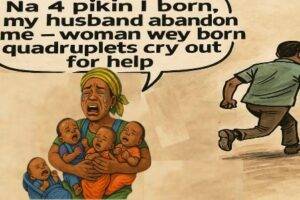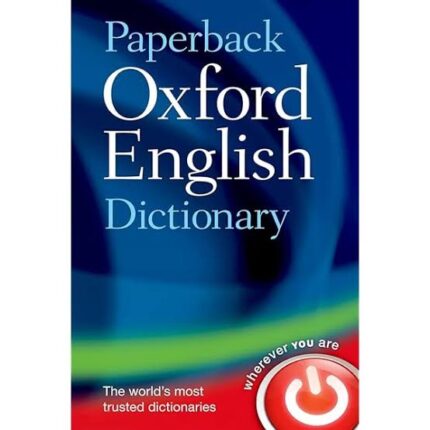The Oxford English Dictionary (OED) has once again expanded its lexicon, this time showcasing the rich linguistic and cultural heritage of Nigeria. In its latest update, 20 Nigerian words and expressions have been officially included, bringing global recognition to terms that have long been part of everyday conversations in the country.
Celebrating Nigerian Vernacular: Words that Reflect Everyday Life
The newly added entries include popular words such as “japa,” “agbero,” “eba,” “419,” and “abi,” among others. These terms, rooted in Nigerian Pidgin English, street slang, and traditional expressions, reflect the diverse ways Nigerians communicate and connect.
For instance, “japa” describes the act of emigrating to other countries in search of better opportunities, a phenomenon that has become a hot topic in recent years. Meanwhile, “agbero” refers to a tout, typically seen at car parks or bus stops, playing an integral role in Nigeria’s transport system. Other terms like “eba” and “419” further emphasize the blend of cultural and social nuances unique to Nigeria.
Notably, words like “japa” and “jand” have dual entries as both nouns and verbs, underscoring their flexibility in daily usage. To aid non-Nigerian speakers, pronunciation guides have been provided, ensuring accurate articulation and deeper appreciation of these words.
Cultural Significance of the Newly Added Words
Each of the newly added words carries deep cultural significance and offers insight into Nigeria life and society. For instance, “japa,” which denotes the emigration of Nigerians in search of better opportunities abroad, has become a symbol of aspiration and the challenges of migration. Similarly, “agbero,” commonly used to describe touts who work at bus stops and car parks, paints a vivid picture of Nigeria’s bustling urban landscapes.
The inclusion of words such as “419” (referring to advance-fee fraud) and “yahoo yahoo” (internet fraud) highlights the complex realities of Nigerian society, where economic struggles often give rise to unique phenomena. Other terms like “eba” (a popular Nigerian dish made from cassava) and “gele” (a head tie often worn by women) celebrate the richness of Nigerian cuisine and fashion.
Kingsley Ugwuanyi’s Role in Shaping the Update
The announcement of the update came from Kingsley Ugwuanyi, a Nigerian English consultant for the OED, who took to LinkedIn to share his excitement. He played a significant role in drafting the new words and recording their pronunciations for the dictionary.
“I’m thrilled to announce that the Oxford English Dictionary has officially published its latest updates, featuring an amazing collection of Nigerian English words that beautifully reflect Nigeria’s culture, creativity, and the unique ways we express ourselves as Nigerians,” Ugwuanyi wrote. He expressed pride in being part of the process, noting that his voice now brings these words to life for millions exploring the OED online.
Definitions That Speak to Nigeria’s Identity
Among the highlighted entries, “419” is defined as “fraud involving requests for advance payment in return for a substantial share of a large amount of money, which ultimately is never given.” This term, synonymous with scams in Nigeria, has gained international infamy.
Similarly, “eba” refers to a staple food made from cassava flour, a dish deeply tied to Nigerian cuisine. “Abi,” a conversational filler, reflects the easy-going, interrogative tone often found in Nigeria dialogue. The addition of these terms not only validates their everyday use but also cements their relevance on the global stage.
A Rich Linguistic Heritage Goes Global
The inclusion of other terms like “gele” (a headgear worn by women), “suya” (a spicy grilled meat dish), and “Naija” (a colloquial term for Nigeria) highlights the diverse cultural expressions embedded in Nigerian English. Words such as “Kanuri” (an ethnic group) and “adire” (a type of traditional batik cloth) further emphasize Nigeria’s cultural depth.
This milestone demonstrates the growing recognition of Nigeria’s linguistic contributions to the global lexicon. By bringing these words into the Oxford English Dictionary, the richness of Nigerian English has gained a new platform, offering the world a glimpse into the creativity, resilience, and vibrancy of Nigerian culture.
This update not only celebrates the diversity of the English language but also underscores the role of local expressions in shaping global communication. For Nigerias, it’s a proud moment that affirms the power of their words and culture on the international stage. ::: Full List of Newly Added Words
The OED update includes the following Nigerian words and expressions:
419
Abi
Adire
Agbero
Area boy
Cross-carpet
Cross-carpeting
Eba
Edo
Gele
Jand (noun, verb)
Janded (adjective)
Japa (noun, verb)
Kanuri
Kobo
Naija
Suya
Yahoo
Yahoo boy
Yarn Dust
The recognition of these words in one of the world’s most authoritative dictionaries not only highlights the global reach of Nigerian English but also ensures that the unique experiences and expressions of Nigerians are documented and celebrated for generations to come. This development is a milestone for the country’s linguistic and cultural heritage.
Table of Contents
Discover more from OGM News NG
Subscribe to get the latest posts sent to your email.














